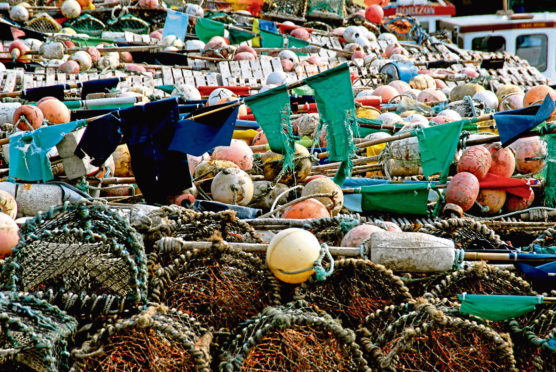The widespread use of items such as milk cartons and netted footballs as buoys to show where inshore fishing gear is located will be outlawed under new legislation, the Scottish Government said yesterday.
It is part of efforts to improve the marine environment in the seas around Scotland.
Fisheries Secretary Fergus Ewing warned poorly marked static gear was also potentially dangerous to fishers and could lead to conflict.
Following a public consultation, a package of new measures for any static gear used within 12 nautical miles of Scottish coastlines has been agreed.
These include legislation to stop gear being marked with “inappropriate” items and requirements for licensed fishermen to mark buoys with their vessels’ port letters and numbers.
Unlicensed fishers will have to mark their gear with a unique reference number provided by Marine Scotland.
Best practice guidance setting out safe and effective marking practices will be issued this summer, with new legislation coming into force next spring.
Mr Ewing said: “Our inshore waters are important to our rural economy and are the source of some of our best seafood.
“It is important we continue to modernise and address issues such as poorly marked static gear which can be dangerous and lead to conflict.
“By introducing a mixture of legislation and guidance, we will be able to address these safety issues, improve the marine environment and make it easier for any gear accidentally towed or lost to be returned to its owner.”
He added: “We are also taking into account the concerns of fishermen worried about the impact to their business of gear loss.
“These measures tie in with our efforts to deliver real improvements through our inshore fisheries strategy, so our fishermen can benefit from a more sustainable, profitable and well managed Scottish inshore fishing sector.”
Scottish Creel Fishermen’s Federation (SCFF) co-ordinator Alistair Sinclair called the move “a progressive step”.
Mr Sinclair added: “Work to estimate the amount of gear used by unlicensed fishermen is particularly welcome. The SCFF looks forward to continuing working with the Scottish Government to improve interaction between mobile and static fishermen.”
